Are you looking for geothermal vs heat pump differences? Dive into the future of home heating as we compare geothermal wonders to heat pump installation while leaving those costly gas furnace repairs in the past!
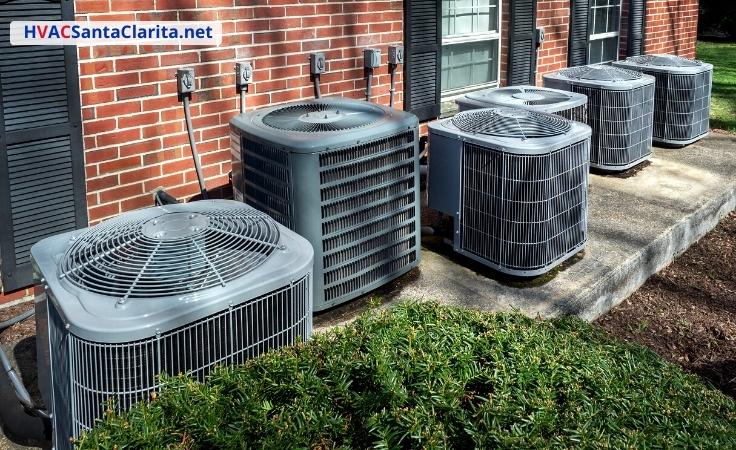
If you are scouting for a heating and cooling system, you must have come across the terms “geothermal heat pump vs air source heat pump.”
What stands out for heat pumps is their high efficiency compared to furnaces and air conditioners.
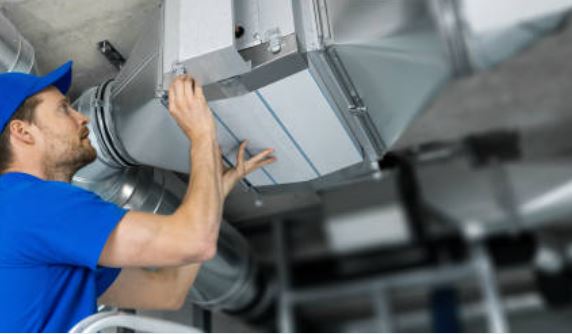
call 661-888-0248
Contact us 24/7 for HVAC services!
But now that it is clear heat pumps are more convenient, many homeowners are left wondering: Should I get a geothermal or ground source heat pump?
Or…
Are air source heat pumps (just called “heat pumps”) best suited for me?
It is no lie; both are great at what they do. But there is undoubtedly one that suits you best.
Keep reading as we, HVAC Santa Clarita, break down the differences for you.
Let’s go!
Geothermal Heat Pumps vs Air Source Heat Pumps
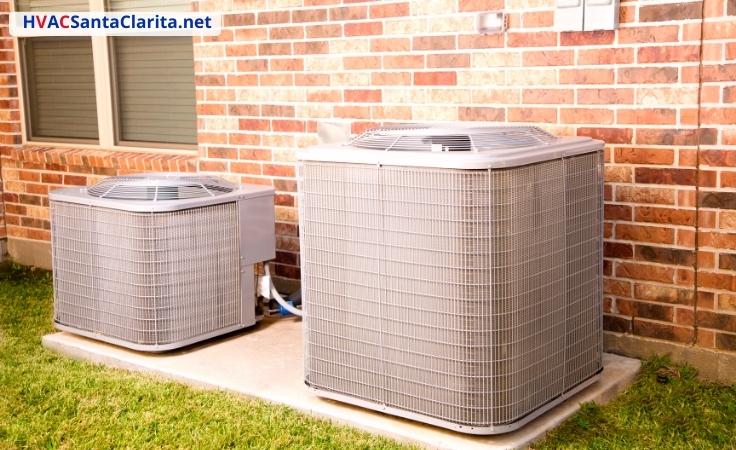
When purchasing cooling systems, many homeowners care about the cost of installation and the cost of running the HVAC system. This is a great way to look at it, but it may still disappoint you in the long run.
There are some other minor things to look at. From the onset, they may appear minor but are still very important.
We differentiate the two here and hope to help you make the best decision.
Geothermal vs Heat Pump: An Overview
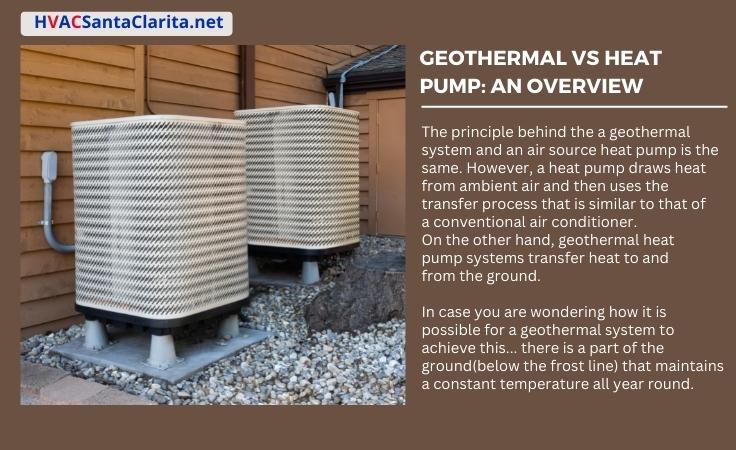
We believe you already know that heat pumps do not generate heat. Instead, they use refrigerant or coolant to transfer heat energy to where it is needed. This is why they are way more effective than furnaces, as you will find out in the heat pump vs gas furnace comparison, as well as in heat pump vs central air and heat pump vs electric furnace.
The principle behind the geothermal system and an air source heat pump are the same. However, a heat pump draws heat from ambient air and then uses a transfer process similar to that of a conventional air conditioner.
On the other hand, geothermal heat pump systems transfer heat to and from the underground.
In case you are wondering how a geothermal system can achieve this… there is a part of the ground(below the frost line) that maintains a constant temperature all year round. This is not affected by outdoor temperature fluctuations. Therefore, the geothermal system can quickly draw or dispose of heat in this area.
Geothermal Heat Pump vs Air Source Heat Pump: Installation
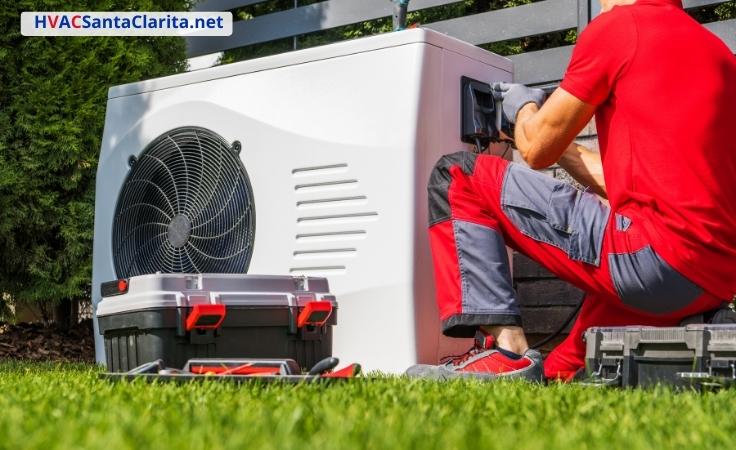
Geothermal heat pump heating system installation can be complicated. For starters, you need a large horizontal area for piping; this has to go multiple feet below the frost line. A borehole approximately 100 feet deep has to be drilled for vertical geothermal heat pumps.
Of course, you cannot do this if you live in a rented apartment.
Furthermore, machinery to do the drilling requires a permit for operation. And yes not everyone gets the clearance to go on with the operation.
Also, with heavy drilling comes high labor costs. Remember that not all HVAC contractors are licensed to do this. You may have trouble finding one within your community.
Installing an air source heat pump is pretty straightforward. You will love that:
- you need just a little space for both the outdoor and indoor units,
- it can easily be installed in a rented space,
- you do not need permits to get the work done,
- it is not labor intensive,
- heat pump installation is easy; your local HVAC contractor will do it for you.
Geothermal vs Heat Pumps: Installation Costs
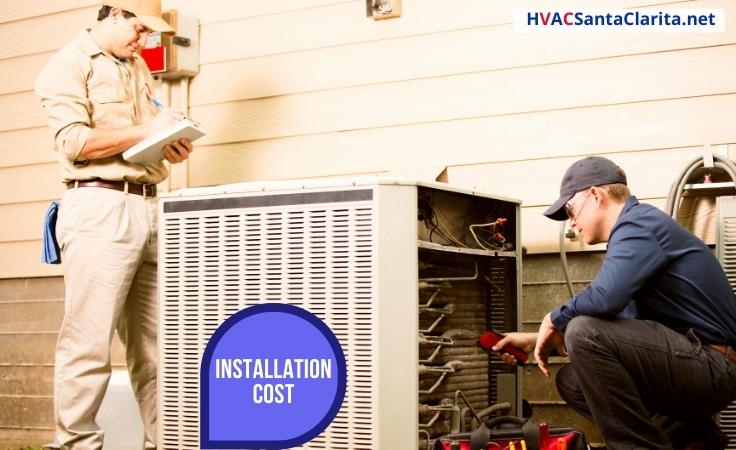
The installation costs of geothermal heat pumps would be higher; the process is labor-intensive.
HomeAdvisor says purchasing a heat pump will cost you between $3,875 and $10,000. On the other hand, purchasing geothermal systems will cost you between $3,592 and $15,578 and up including current inflation.
The difference will not be significantly higher depending on the system you choose to buy.
The major difference comes in the labor part of the installation.
Geothermal vs Air to Air Systems: Cost to Run
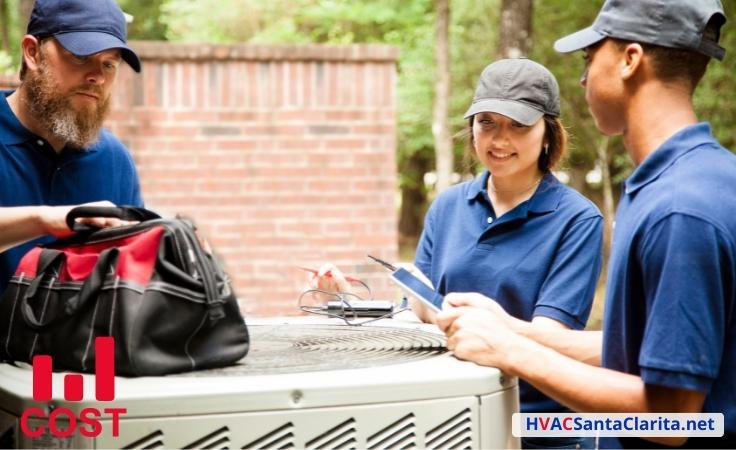
When buying heat pumps, do not just focus on the upfront costs. The cost to run the system will stick with you for as long as you will have your heat pump. You, therefore, want to get the most energy-efficient option.
Geothermal systems consume less energy than conventional air source heat pumps.
According to Home Inspector Insider, a geothermal heat pump is 25% to 50% cheaper to run than an air source heat pump. They also state that in the long run, this range can save you up to a cool $10,000(1).
Geothermal vs Heat Pump: Life Span
Geothermal systems last anywhere from 25 to 50 years. That is an incredibly long time and even makes it worth the high installation cost.
On the other hand, heat pumps last anywhere between 15 to 20 years. They may even last less than 15 years if you are not vigilant with their maintenance.
Get maintenance services regularly to keep your system working well for longer. Contact us for maintenance and AC repair Santa Clarita, to improve the lifespan of your HVAC systems.
Geothermal Heat Pumps vs Air Source Heat Pumps: Heating and Cooling Load
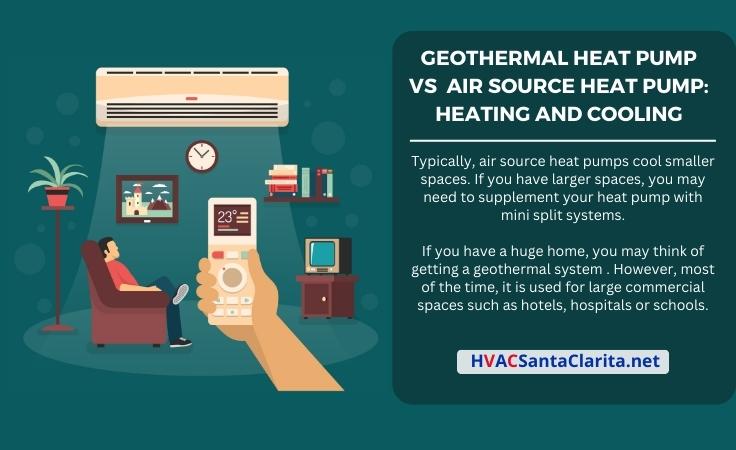
How vast is the space you want to cool and heat?
Typically, air source heat pumps cool smaller spaces. If you have larger spaces, you may have to supplement your heat pump with mini-split systems.
You may consider getting a geothermal system if you have a vast home. However, it is mainly used for large commercial spaces such as hotels, hospitals or schools.
Getting the wrong size system always ends up in chaos. Ensure you talk to your HVAC tech to get the correct size system.
Decreased performance at low temperatures
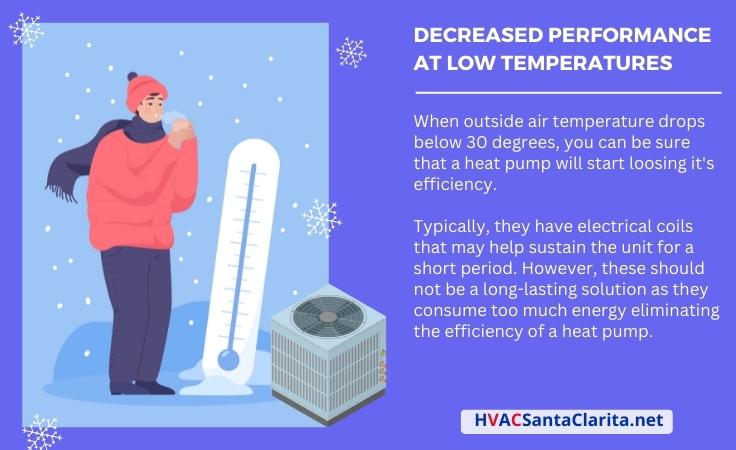
When the outside air temperature drops below 30 degrees, you can be sure that a heat pump will start losing its efficiency.
Typically, they have electrical coils that may help sustain the unit for a short period. However, these should not be a long-lasting solution as they consume too much energy, eliminating a heat pump’s efficiency.
On the other hand, geothermal heat pumps are not affected; remember that they draw heat energy from a place with constant ground temperature. This is an excellent option for you if you live in areas with extreme winters.
Key Takeaways
When is it best to get a regular heat pump?
And when is the best to go with the geothermal heat pumps?
Go for regular Heat Pumps if…
You Want Quick Installation
Air source heat pump installation can be very straightforward in heating HVAC services.. Installing one can take a maximum of three days. However, if you already have ductwork in place (many houses and offices already do), it may take even a day.
Installing a geothermal heat pump can take up to 2 months. Factor in the time you will need to apply and get permits, dig, install the tubes, and install the unit itself.
If you want to enjoy the heating or cooling services immediately, a geothermal unit may not be for you.
You have a small living space
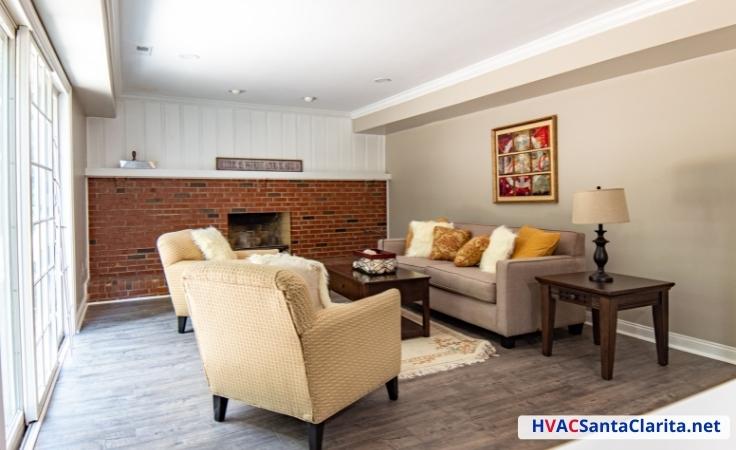
If you are looking for a heating and cooling solution for a small apartment, the answer is a heat pump.
Going for a geothermal system is not worth it in this case. If the area you are cooling or heating is smaller, the energy savings that come with a geothermal system will be less and sometimes even negligent.
The savings of geothermal heat pumps show up more with bigger spaces.
However, you may still consider a geothermal heat pump if you plan to stay in your small house for an extended period. In this case, you may not save as much energy efficiency. But, you will save how long geothermal systems last; they last twice as much as regular heat pumps.
Your Apartment is Unsuitable
The agreement of some houses or apartments may not allow you to dig for a geothermal system.
In such cases, the only choice you have left is a heat pump system.
And it is not just about the agreement. Sometimes, the ground around your house may be unsuitable for installing a ground source heat pump.
Before the installation process, a ground assessment has to be done to ensure the soil is suitable for this procedure.
For starters, if there are existing foundations, cables or pipes, it cancels out the possibility of installing a geothermal system.
Your Property is Unsuitable for Geothermal System Installation
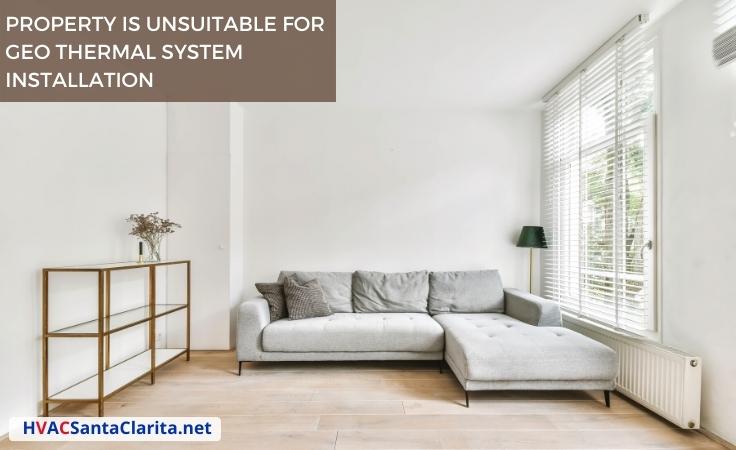
If your property is close to many high-rise buildings, chances are high that you will not have ample suitable space for installing a geothermal heating and cooling system.
Note: For better performance of geothermal heat pump, the soil around your property better have thermal conductivity and low resistivity. A before-hand assessment will help figure these out. Also, if the soil is rocky, the drilling costs will multiply.
Geothermal vs Heat Pump Frequently Asked Questions
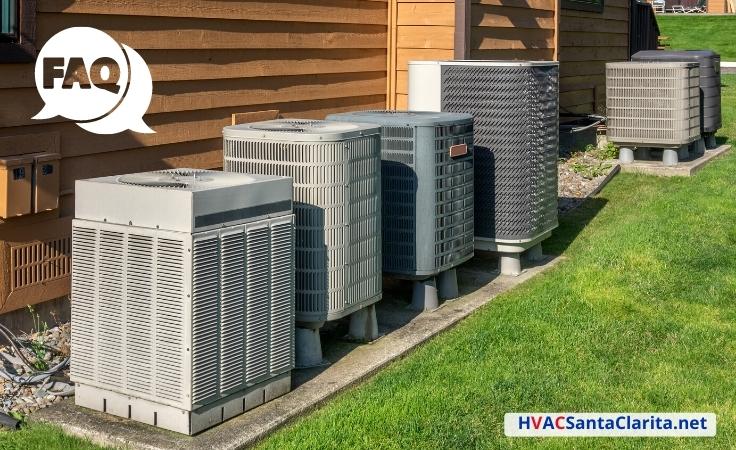
We answer some frequently asked questions below to help you decide which cooling and heating system is most suitable for you and your cooling needs.
Does a Geothermal heat pump use more electricity?
No, they use at least 25% less electricity than a heat pump. And a heat pump uses less electricity than other HVAC systems such as air conditioners and furnaces. Even if you do the heat pump vs air conditioner comparison, heat pumps will carry the day. Therefore, while comparing these options, geothermal heat pumps’ heating and cooling costs will always be lower.
Do Geothermal heat pumps occupy more space?
The indoor unit of a geothermal system is almost the same size as a heat pump. However, they need more space to cater to the hoses and pipes.
Also, since the hoses and the system are underground, you may not realize how much space they occupy.
Is geothermal better than a heat pump?
In some instances, yes; in some, no.
A geothermal heat pump could be ideal if you want to cool a more ample space over a long period. In such instances, they will be energy efficient and save you much more.
Is geothermal cheaper than a heat pump?
In terms of installing them, they are more expensive than heat pumps.
However, in terms of running, they are much cheaper than heat pumps.
If you do the heat pump vs HVAC comparison, you will likely have very different results.
What are the disadvantages of using geothermal energy?
They are:
- expensive to install
- labor-intensive to install,
- time-consuming to install,
- dependent on how your ground space is.
What are the 2 advantages of Geothermal heat pumps?
- They have a long lifespan,
- They retain their efficiency even in freezing temperatures
What are the main advantages of heat pumps over geothermal systems?
- They are cheaper to install,
- straightforward and easy to install,
- and appropriate for milder temperatures.
Final Thoughts
We are wrapping it up and are glad you came this far.
At this point, we are convinced that you are aware there is no winner when it comes to these two.
The winner between a geothermal and a heat pump will depend on your situation. This is the same story as with ductless heat pumps. And obviously, what works for you may not work for your neighbor.
Do your research well, consult your HVAC technician, and you will indeed find the most appropriate choice for you.
Feel free to reach out to us in case you need anything in regards to geothermal vs heat pump. We would gladly help you out.

call 661-888-0248
Contact us 24/7 for HVAC services!
Our Address is
HVAC Santa Clarita
26893 Bouquet Canyon Rd
Santa Clarita CA 91350
Opening hours
Monday 8 am – 8 pm
Tuesday 8 am – 8 pm
Wednesday 8 am – 8 pm
Thursday 8 am – 8 pm
Friday 8 am – 8 pm
Saturday 8 am – 8 pm
Sunday 9 am – 5 pm
Sources
https://www.energy.gov/energysaver/geothermal-heat-pumps
